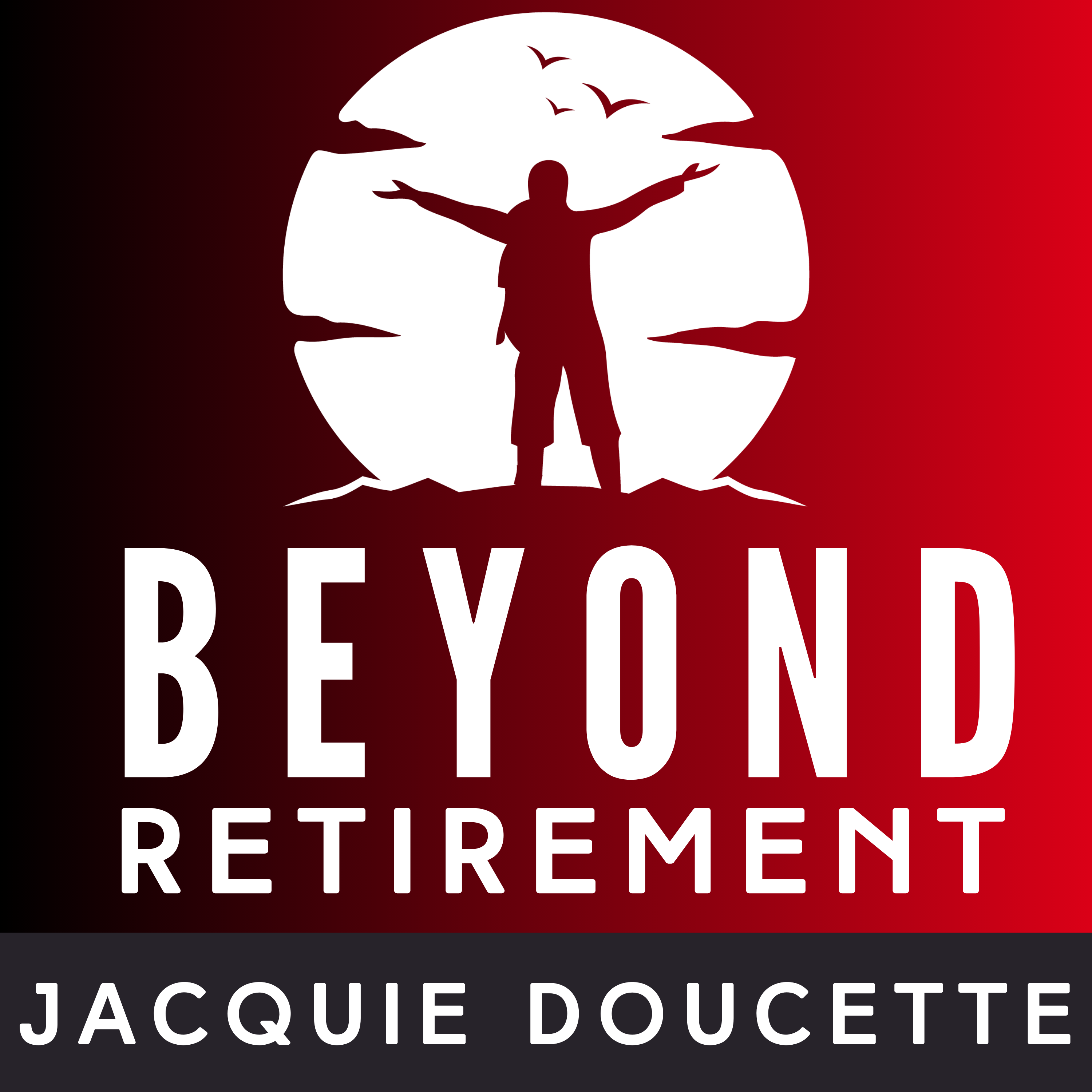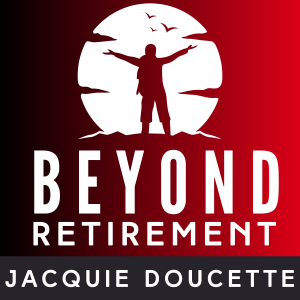
TRANSCRIPT:
I believe that heading into our Beyond Retirement phase of life is a great time to start taking a look at the people we’re hanging around with, if we haven’t done that already. EA said there are really 3 groups that a person can be categorized into based on their actions - there are Givers and there are Takers and as expected, they have different characteristics and they interact with us differently. The third group is made up of the Fence-Sitters, the folks who behave as either a Giver or a Taker, depending on whose company they’re in. This group is by far the largest of the three, as you can imagine.
I’ve been thinking about this a lot since our conversation, trying to figure out how to make it all make sense from a Beyond Retirement point of view. One of the ways EA defines the differences between Givers and Takers is in what they share with others. Givers bring wisdom, wealth and wellness to their relationships, while Takers bring defeatism, destruction and disruption to their relationships. Just going by those gifts (if you can call them that), I’d think it’s pretty easy to see that you’d be gaining a lot more from a relationship with a Giver than with a Taker, regardless of what phase of life you’re in. And as we travel the road Beyond Retirement, I think we’re going to find that wisdom, wealth and wellness are concepts that we want to pursue, whether or not we’ve done so up to this point, because these are the concepts that are going to take us forward and bring us closer to the joy and fulfilment that we’re looking for in this stage of life. So being able to figure out whether you’re chatting with a Giver or a Taker is a pretty important skill to acquire, I’d say.
The next thing EA mentioned is the idea that we should separate the people in our lives from their actions. Usually, we make a decision about a person based on what they say and do; we decide whether or not we like them because we either like or dislike their actions or words. But EA pointed out that we can like or love a person and not like or love what they’re doing. He called this discernment. The Merriam-Webster dictionary defines discernment as “the quality of being able to grasp and comprehend what is obscure.” To grasp means to lay hold of with the mind and obscure means not known to most people; likely to be understood by only a few people; difficult or impossible to know completely and with certainty. So, the bottom line here is that developing the quality of discernment will probably set you apart from the majority of people and with this skill, you’ll be able to really see people for who they are and figure out whether they’re going to drain you or fill you up. And I think it’s safe to say that by the time we get to the stage of life we’re in, we aren’t looking for people to drain us!
Something I learned quite a while ago that’s stuck with me is the idea that you become the average of the 5 people you spend the most time with. The idea here is that you start to think like these people and act like these people, so consequently your choices are similar, and you will eventually rise or fall to the level that is about midline of that group. Depending on the group you’re in, you are someone’s number 1 or number 5 too, and they’ll be moving up or down to match where you are. All of this is quite subconscious, naturally, but the act of finding and maximizing the potential of your group should be no accident. Especially as you’re going into the retirement years. You’ll want to find people who share your interests and values, people who see things the way you do, because these are the people who are going to help you make the transition and create the best life you can have.
So how do you find these people? I think the first step is to start examining the people you spend time with now. What are they doing?
More Episodes
 2020-12-06
2020-12-06
 2020-11-29
2020-11-29
 2020-11-22
2020-11-22
 2020-11-15
2020-11-15
 2020-11-08
2020-11-08
 2020-11-01
2020-11-01
 2020-10-25
2020-10-25
 2020-10-18
2020-10-18
 2020-10-14
2020-10-14
 2020-10-11
2020-10-11
 2020-10-07
2020-10-07
 2020-10-04
2020-10-04
 2020-09-30
2020-09-30
 2020-09-27
2020-09-27
 2020-09-23
2020-09-23
 2020-09-20
2020-09-20
 2020-09-16
2020-09-16
 2020-09-13
2020-09-13
 2020-09-09
2020-09-09
 2020-09-06
2020-09-06
Create your
podcast in
minutes
- Full-featured podcast site
- Unlimited storage and bandwidth
- Comprehensive podcast stats
- Distribute to Apple Podcasts, Spotify, and more
- Make money with your podcast
It is Free
- Privacy Policy
- Cookie Policy
- Terms of Use
- Consent Preferences
- Copyright © 2015-2024 Podbean.com






